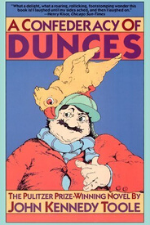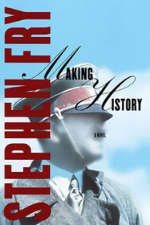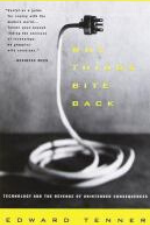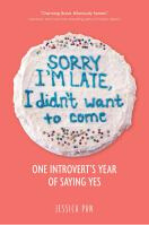Mon, 07/06/2020 - 3:47pm

The theme of this year’s ArtBeat (July 10-18) is chance, featuring virtual performances and real life art installations exploring the unexpected and unplanned. In honor of the festival---and the uncertain times we’re living in—we at SPL decided to recommend some books that engage with the risky and unpredictable.
 Our first stop is New Orleans in the early 1960s, the setting of John Kennedy Toole’s novel A Confederacy of Dunces. Toole’s protagonist—perhaps antagonist?—is Ignatius J. Reilly, a 30 year-old self-proclaimed genius, constantly brooding on the failings of contemporary society and hoping to find remedies for the world’s ills in early Medieval philosophy (and maybe Batman comic books—Ignatius respects Batman). However, Ignatius’ mother, disgusted that her adult son lives with her and has been unemployed his entire life, orders him to get a job, and Ignatius ambles off into the French Quarter looking for work. As he walks the streets of the Big Easy answering ads and insulting complete strangers, he unknowingly initiates chain reactions of events that transform the lives of the people he meets—sometimes for the better, sometimes decidedly not. A cult classic since its publication, A Confederacy of Dunces won the 1981 Pulitzer for fiction and in 2015 the Huntington Theatre Company performed a stage adaptation of the novel starring none other than Nick Offerman (Parks and Recreation).
Our first stop is New Orleans in the early 1960s, the setting of John Kennedy Toole’s novel A Confederacy of Dunces. Toole’s protagonist—perhaps antagonist?—is Ignatius J. Reilly, a 30 year-old self-proclaimed genius, constantly brooding on the failings of contemporary society and hoping to find remedies for the world’s ills in early Medieval philosophy (and maybe Batman comic books—Ignatius respects Batman). However, Ignatius’ mother, disgusted that her adult son lives with her and has been unemployed his entire life, orders him to get a job, and Ignatius ambles off into the French Quarter looking for work. As he walks the streets of the Big Easy answering ads and insulting complete strangers, he unknowingly initiates chain reactions of events that transform the lives of the people he meets—sometimes for the better, sometimes decidedly not. A cult classic since its publication, A Confederacy of Dunces won the 1981 Pulitzer for fiction and in 2015 the Huntington Theatre Company performed a stage adaptation of the novel starring none other than Nick Offerman (Parks and Recreation).
 Anyone who reads science fiction can tell you that whenever you travel through time you’re taking a chance: you have no idea how your actions in the past might change the present—or the future. But some people have to find that out for themselves—such as Michael Young, the main character of Stephen Fry’s Making History. Michael is a graduate student in German history at Cambridge whose scientist girlfriend has been working on a male contraceptive. When Michael befriends Leo Zuckerman, an elderly physicist who’s mastered the rudiments of time travel, he gets an idea: what if his girlfriend’s prototype contraceptive could be sent back in time and into the water supply of the home of Hitler’s parents? They do it—and suddenly they’re thrust into an alternative timeline where Hitler never existed. And the world is much, much worse as a result: under the leadership of a more cunning dictator, the Nazis actually won the war. Michael and Leo struggle to reconnect in this alternative world and use Leo’s time machine again—this time, to make sure Klara Hitler conceives.
Anyone who reads science fiction can tell you that whenever you travel through time you’re taking a chance: you have no idea how your actions in the past might change the present—or the future. But some people have to find that out for themselves—such as Michael Young, the main character of Stephen Fry’s Making History. Michael is a graduate student in German history at Cambridge whose scientist girlfriend has been working on a male contraceptive. When Michael befriends Leo Zuckerman, an elderly physicist who’s mastered the rudiments of time travel, he gets an idea: what if his girlfriend’s prototype contraceptive could be sent back in time and into the water supply of the home of Hitler’s parents? They do it—and suddenly they’re thrust into an alternative timeline where Hitler never existed. And the world is much, much worse as a result: under the leadership of a more cunning dictator, the Nazis actually won the war. Michael and Leo struggle to reconnect in this alternative world and use Leo’s time machine again—this time, to make sure Klara Hitler conceives.
 Now let’s move from fiction to history—specifically the history of technology. Every inventor knows they’re taking a chance: investing time and money in a device that may not work, or a product that won’t be profitable. But many of them don’t know they’re taking another kind of chance: that a product created with the best of intentions may harm people—or at least cause them emotional distress. When Ethan Zuckerman invented the pop-up ad, he was just trying to find a way for websites to generate revenue: he had no idea his creation would become one of the most hated features of the Internet.
Now let’s move from fiction to history—specifically the history of technology. Every inventor knows they’re taking a chance: investing time and money in a device that may not work, or a product that won’t be profitable. But many of them don’t know they’re taking another kind of chance: that a product created with the best of intentions may harm people—or at least cause them emotional distress. When Ethan Zuckerman invented the pop-up ad, he was just trying to find a way for websites to generate revenue: he had no idea his creation would become one of the most hated features of the Internet.
The unexpected negative results of innovation is the subject of Edward Tenner’s Why Things Bite Back: Technology and the Law of Unintended Consequences. He writes about technical subjects clearly and their related ironies with a mordant relish. No subject is too obscure or mundane for Tenner, who describes how air conditioned subways actually raise platform temperatures and football helmets actually cause more head injuries. Why Things Bite Back is a fascinating exploration of human ingenuity—and how ingenious solutions to problems often create more problems.
 In our age of pop psychology and self-help books, self-appointed therapists and personal development experts frequently urge us to take a chance by stepping out of our comfort zones. In Sorry I’m Late, I Didn’t Want to Come, writer and introvert Jessica Pan describes how she did just that during an agonizing year of following psychologists’ suggestions on how to act like an extrovert. An American expatriate living in London, she acts on one therapist’s instructions to talk to strangers on the Underground (a serious violation of social norms). She also attends a workshop called “How to Be Sociable” in which she and a total stranger end up spontaneously sharing all their deepest insecurities. With each little experiment she ends up pushing her own boundaries in new and terrifying ways. Sorry I’m Late is honest, cringe-inducing, and funny.
In our age of pop psychology and self-help books, self-appointed therapists and personal development experts frequently urge us to take a chance by stepping out of our comfort zones. In Sorry I’m Late, I Didn’t Want to Come, writer and introvert Jessica Pan describes how she did just that during an agonizing year of following psychologists’ suggestions on how to act like an extrovert. An American expatriate living in London, she acts on one therapist’s instructions to talk to strangers on the Underground (a serious violation of social norms). She also attends a workshop called “How to Be Sociable” in which she and a total stranger end up spontaneously sharing all their deepest insecurities. With each little experiment she ends up pushing her own boundaries in new and terrifying ways. Sorry I’m Late is honest, cringe-inducing, and funny.

Add new comment